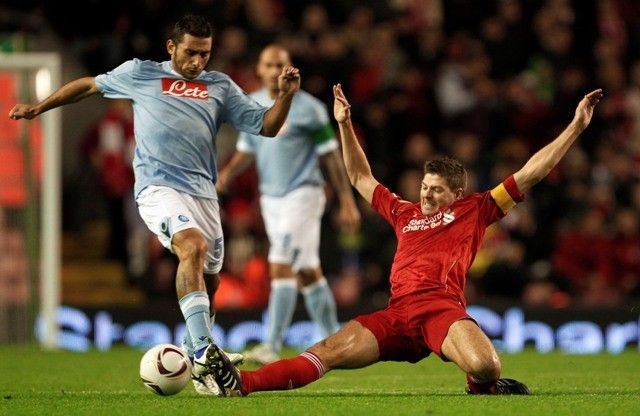Serie A Match Fixing and the Mob

Are Serie A soccer matches being fixed? That is the chief question that Italian investigators are trying to answer this week, after eight people were arrested in Naples for illegal betting.
In what can be considered a truly Italian scandal, police are now alleging that the Naples mafia -- known as the Camorra -- is tampering with matches to increase its take in betting earnings. Investigators are looking at the books for 150 games over the last two seasons in Serie A, Serie B and the lower leagues to see if anomalous betting trends are connected to organized crime and money laundering.
There has been an exchange of information with the FIGC (Italian Football Federation) over the games under suspicion, assistant prosecutor Rosario Cantelmo told Italy's Sky Sports 24.
We have already contacted directors from the clubs involved for an explanation. At this moment we are not naming the clubs.
How does the mafia get involved in soccer? Match fixing is quite simple. The Camorra, if the allegations are true, pays off certain players to steer a game in a particular direction, generally assuring that better team loses. This is easier, and more rampant, in the lower leagues, where players get paid much less and where the sporting stakes and overall risks are lower.
With people betting on the games, generally through the same mobsters fixing the game, an upset will result in a net loss for gamblers and a win for the bookies. Or, a bet on the low-odds underdog, should the team win, yields high profits, and Camorra mafiosi , knowing for certain which teams will win, can make a large sum.
“It can be seen that organized crime makes itself felt and even tries to intervene (in various matches),” said senior investigator Rosario Cantelmo, according to The Irish Times.
The recent scandal broke last spring, but the arrests Friday coupled with the start of the 2011/2012 season (now four games in) heightens the drama. Italy's Interior Ministry set up a match-fixing task force in June, and soccer club Atalanta's captain Cristiano Doni was suspended for three-and-a-half years for his involvement.
The involvement of organised [sic] crime in Italian soccer, especially at the lower “Lega Pro” (3rd 4th Division) level is nothing new, The Irish Times writes. Mafia investigators have long warned that organised crime regularly attempts to control, even to sponsor and fund, small local teams with a view not only to winning local consensus but also as a way of generating for itself a “pool” of future foot soldiers.
In an April 2010 game between Napoli and Parma, police noticed an interesting side-line spectator. Antonio Lo Russo, son of Camorra boss Salvatore Lo Russo, was seen at the game, which ended in a 3-2 Parma upset. According to a report, many members of the Lo Russo and Scissionisti Camorra families had bet against the favored-Napoli.
Serie A is Italy's top professional football league, but that doesn't mean that it's immune from the basest forms of corruption. A 2006 scandal, nick-named the Calciopoli scandal, irrecoverably tarnished professional football in Italy.
It was discovered that the country's top teams were paying referees to rig games. The scandal resulted in docked league points for Milan, Fiorentina and Lazio, which are perennial powerhouses of Serie A. The team most affected was Juventus, which had many of the world's best players on its roster at the time.
Juventus was stripped of its 2005 and 2006 league championship titles and instantly demoted to Serie B, despite finishing in first place.
(In European soccer, at the end of a season the bottom teams from the top leagues get relegated to the league one tier below, while the top teams in the lower leagues get promoted. For example, if Siena finishes last in Serie A, it plays in Serie B the next season, while Serie B's top team moves into Seina's Serie A position.)
The eight people arrested Friday could be charged with illegal gambling and collusion and sent to prison. Former Juventus general manager Luciano Moggi is currently on trial in Naples for fixing games.
© Copyright IBTimes 2024. All rights reserved.











